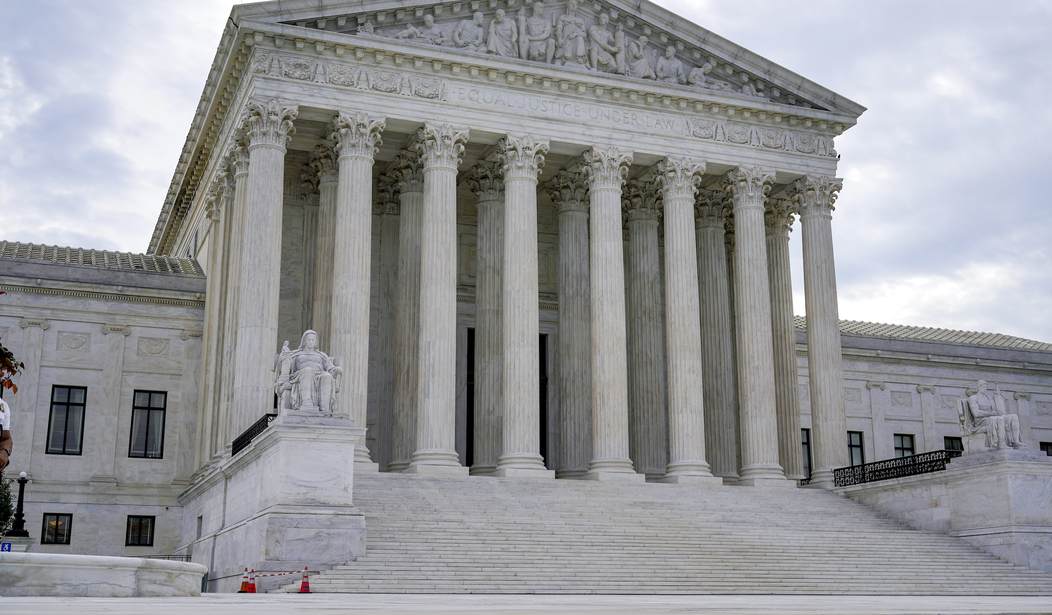The Supreme Court of the United States (SCOTUS) could rule as early as Monday on Texas’ ‘heartbeat’ law, S.B. 8, banning abortions after about six weeks gestation, the Associated Press reported.
On Nov. 1, the high court heard oral arguments for two separate cases surrounding the law – Whole Woman’s Health v. Jackson and United States v. Texas. The latter is the Department of Justice’s (DOJ) lawsuit against the state over the constitutionality of S.B. 8.
As the AP notes, SCOTUS put both cases on a “rarely used fast track,” which heightens the expectation that decisions on the cases would “come sooner than the months the justices usually spend writing and revising their opinions.”
S.B. 8, which has been in effect less than three months, was upheld by SCOTUS the day it took effect after abortion providers and advocacy groups submitted a last-minute request asking the Court to block the law. As we covered, the Court voted 5-4 on Sept. 1 upholding the law. The DOJ announced their lawsuit against the state days later, following Biden’s remarks that he would issue a “whole-of-government” approach to fight it.
Shortly after, Obama-appointed U.S. District Court Judge Robert Pitman blocked the enforcement of S.B. 8. In his ruling, he described the law as “flagrantly unconstitutional” and “offensive.” Abortions resumed at some Texas clinics instantly. Days later, the Fifth Circuit Court of Appeals issued an administrative stay reinstating the law’s enforcement.
Recommended
On Dec. 1, SCOTUS will hear oral arguments for another case pertaining to abortion, Dobbs v. Jackson Women’s Health Organization, which surrounds the constitutionality of a 15-week abortion ban in Mississippi. The outcome of Dobbs could be an overturn of landmark cases Roe v. Wade and Planned Parenthood v. Casey.
“With Thanksgiving approaching, Monday also is probably the last day the court could decide the Texas cases before the justices hear arguments Dec. 1 over whether to reverse nearly 50 years of precedents and hold that the Constitution does not guarantee the right to an abortion. The case is about Mississippi’s ban on abortion after 15 weeks,” the AP stated in their report. However, they noted how the design and enforcement of S.B. 8 is what differentiates it from the law at the center of the Dobbs case.
“The Texas law bans abortion once cardiac activity is detected in the fetus, often around six weeks, before some women know they’re pregnant, and it makes no exceptions for rape or incest,” the article states. “The focus at the Supreme Court, though, is over the design of the Texas law, which deputizes private citizens to enforce it by filing lawsuits against clinics, doctors and others who facilitate abortions. The court is trying to sort out who can sue to challenge the law and whether a federal court can effectively block the law from being enforced.”
Under S.B. 8, private citizens can pursue legal action against anyone who provides an illegal abortion or aids or abets a woman seeking an illegal abortion. Those who successfully bring lawsuits under S.B. 8 can receive $10,000.
When SCOTUS agreed to hear the two cases surrounding S.B. 8, they did not block enforcement of the law. In her seven-page dissenting opinion, Justice Sonya Sotomayor described it as “catastrophic.”
“There is no dispute that under this Court’s precedents, women have a constitutional right to seek abortion care prior to viability,” Sotomayor wrote in her opinion, referring to Roe. “There are women in Texas who became pregnant on or around the day that S. B. 8 took effect. As I write these words, some of those women do not know they are pregnant. When they find out, should they wish to exercise their constitutional right to seek abortion care, they will be unable to do so anywhere in their home State.”

























Join the conversation as a VIP Member